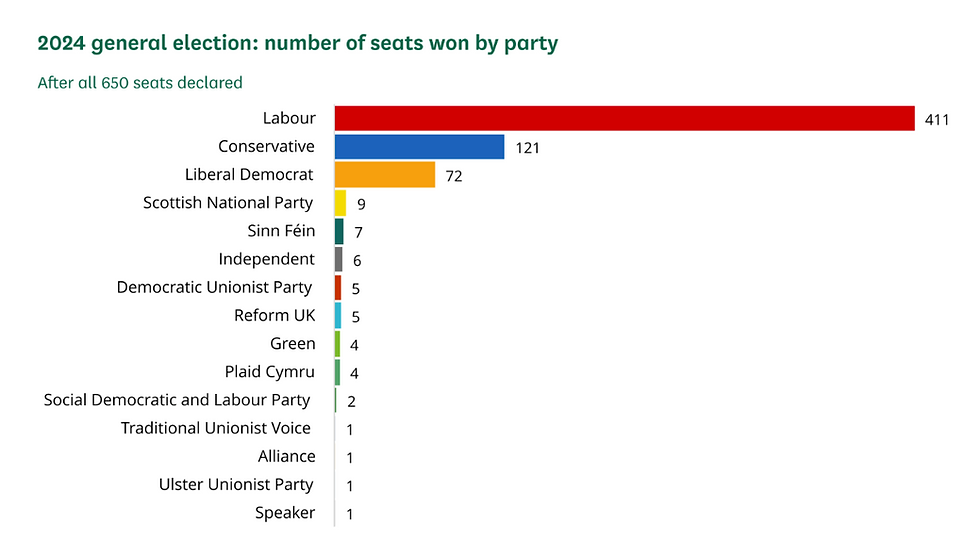#ENDSARS — a call for economic empowerment of Nigeria’s Youth
- david42834
- Feb 16, 2022
- 4 min read

An uncertain calm returns to the streets of many Nigerian cities, especially Lagos, following the aftermath of the peaceful protests which turned violent, when the government deployed the army with live bullets to disperse unarmed protesters at a sit-in at the Lekki toll gate in Lagos. What happened on October 20, 2020 will always be remembered as a turning point in the epic story of Nigeria’s fall to disgrace, as a nation that has somehow never quite managed to channel its economic success in the oil & gas industry to the benefit of its massive population of people living below the poverty line.
For years, Nigerians have complained about SARS (Special Anti-Robbery Squad) and their techniques. Members of SARS notoriously profile young men and women for having dreadlocks, tattoos, owning iPhones or laptops and would detained them in order to extort “bail” from them and in some extreme cases the detained person ‘disappears’ when he or she cannot meet the payment demands.
In a a country where unemployment in the second quarter of this year stood at 27.1%[1], inflation at about 13%[2] , where an estimated 80 million people lack access to electricity[3] and an estimated 55 million lack access to safe water[4]. The additional burden of living in fear of SARS and the insensitive response to pleas for their disbandment, was fuel to the already simmering flame of discontent in the country.
On the 20th of October 2020, following the announcement of a curfew that began from 9 PM, peaceful protesters were greeted by armed forces with rounds of live fire whilst sitting on the ground, singing the national anthem and waving the Nigerian flag that ended up soaked in blood by the time the armed forces were done. In typical fashion of no accountability, the government initially tried to downplay reports of fatalities at the scene before launching a full investigation (which it has now, thankfully done).
For the average Nigerian, life is a combination of hustling to make ends meet, being underpaid, living without electricity, or running water (or adopting a DIY attitude to creating your own basic infrastructure).
In the public sector, due to insufficient investment in health and education by the government, these facilities are not fit for purpose. Upward socio-economic mobility is almost impossible, rather one struggles against the tide of downward mobility which looms over the heads of many Nigerians. A poverty mobility study by the Center for Global Development found that in Nigeria more people fell into poverty than escaped it in between 1980 and 2010[5] and this has only gotten worse, Nigeria becoming the world’s poverty capital in 2018[6].
With an estimated 50% of the population between 18 and 35 years old (which is the case in most African countries ), Nigeria is a country with immense potential, if only it would deploy the necessary infrastructure, resources and access to capital that would nurture and develop its dynamic youthful population. In spite of the challenges listed above, young Nigerians finding ways to thrive as entrepreneurs even though the odds are stacked against them. However, in a population of over 170 million people, we cannot expect everyone to dream of that ‘lucky break’ ; instead the government and the public sector need to wake up to their responsibilities to improve the economic conditions in the country and to open up to being accountable for every penny of the budgetary expenses that area announced but which somehow do not seem to make any impact in various sectors. Population estimates for 2050, see Nigeria becoming third most populous country in the world[7], If things continue at the unfortunate and debilitating pace that is apparent, many Nigerians are expected to remain in poverty with slim prospects of upward economic mobility and very little ability to save let alone grow wealth.
The End SARS protests and the government’s response are symptoms that demonstrate the deep routed culture of poor governance and the disconnect between the reality of the average Nigerian’s way of life and the arrogance of their leaders and the ruling class, to the plight of its people. It has also brought to the surface the simmering tensions created between the gaping divide between the rich and the poor.
Whilst the solutions to the current protest involve a judicial investigation into the how the EndSars protest became marred with violence targeted initially at the peaceful protesters and later at the people, by government and by the angry, hungry masses respectively, one this is clear: the future of Nigeria will only be brighter if the economic oppression of the people is tackled and overcome, and access to education, healthcare and housing for all becomes a priority.
The future lies in the hands of the younger generation — millennials and Generation Z — who showed themselves equal to the task of organising the country wide peaceful protests, posting inspiring messaging (on social media), as well as transparently channelling the financial and non-financial aid received, to spur on and encourage their colleagues protesting. The youth have the power, as the largest demographic of voters, to hold the country’s leadership to account and also to educate themselves on how to make Nigeria great again.
So what began as a protest to end police brutality may have morphed into a movement for change, for possible constitutional reform and most importantly for lasting economic empowerment of a generation of Nigerian youths who love their country and are desperate to see it thrive!
External links
Business Day (August 2020): https://businessday.ng/lead-story/article/nigeria-records-highest-unemployment-rate-in-6yrs-at-27-in-q2-2020/
Nairametrics (September 2020): https://nairametrics.com/2020/09/15/breaking-nigerias-inflation-rate-hits-13-22-in-august-2020-highest-in-29-months/
Business Day (October 2020): https://businessday.ng/news/article/80m-nigerians-lack-access-to-electricity-rea/
Vanguard Nigeria (March 2020):https://www.vanguardngr.com/2020/03/world-water-day-2020-55-million-nigerians-lack-access-to-safe-water-wateraid/
Quartz Africa (June 2018):https://qz.com/africa/1313380/nigerias-has-the-highest-rate-of-extreme-poverty-globally/
Center for Global Development (June 2018): https://www.cgdev.org/publication/three-decades-poverty-mobility-nigeria-trapped-freed-and-never-trapped
The Economist (March 2020): https://www.economist.com/special-report/2020/03/26/africas-population-will-double-by-2050




Comments